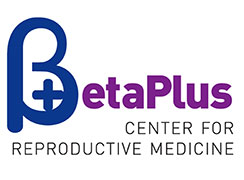WHAT IS EGG FREEZING?
Egg freezing (cryopreservation) is a technology used to extract, freeze and store eggs from a woman’s body. Eggs can later be thawed, fertilized and returned to uterus as embryos. This method allows women to decide freely on the beginning of motherhood, but also on egg preservation should medical reasons for it exist. Egg cryopreservation is not allowed according to law in the Republic of Croatia unless it is for medical reasons.
Woman’s fertility declines with her age. Chances for successful pregnancy in her forties are significantly higher if she freeze her eggs before the age of 35. After the age of 36, and if the pregnancy needs to be postponed, embryo cryopreservation is recommended rather than eggs.
EGG CRYOPRESERVATION
The ability to get pregnant and give birth to a healthy child is related to woman’s age and starts to decline after the age of 30. Egg freezing is one of the possibilities used for preserving fertility and can be used in:
- Women who are exposed to unhealthy environment at their workplace which can have an effect on their eggs (long flights, exposure to radiation, exposure to dangerous chemical substances such as paints, varnishes, tar),
- Top athletes (postponing motherhood until the end of professional career),
- Women who had ovarian cyst surgery or endometriosis resulting in partial or complete ovary removal,
- Women who had disease or disorder treatment that can have a negative effect on the ovaries (autoimmune diseases),
- Women with genetic or autoimmune predispositions (Turner syndrome, systemic lupus eritematodes, Addison’s, galactosemia, diabetes mellitus, miastenia gravis),
- Women with family predispositions for premature menopause,
- Women which are about to receive cancer treatment – chemotherapy, radiation or ovary removal. Fifty thousand cases of cancer in women of reproductive age are found in the US every year.
THE PROCEDURE
CONSULTATIONS
Before you start the process of egg freezing you need to schedule a consultation with fertility preservation specialist. During the first consultation, the doctor will provide you with detailed information on egg freezing and advise doing the necessary tests. You should have all the documentation and necessary test results ready for your second consultation. In order to begin an egg freezing process you should have the test results of your hormones, Pap smear, cervical swabs, blood type and blood tests for contagious diseases.
In the next step, your doctor will do an ultrasound and gynecological examination. Should you decide to go through with the procedure, you will have to sign the informed consents for treatments and medical interventions.
OVARIAN STIMULATION
Most often you will be given ovarian stimulation. In one menstrual cycle a woman produces one egg. In each cycle, a competition for domination between around 10 follicles takes place. Only one follicle containing an egg can win and mature and the others will arrest development. With ovarian stimulation these follicles can be saved and several eggs can be retrieved, during one cycle.
Ovarian stimulation is done using different stimulation protocols which are personalized to suit each patient. Details on ovulation stimulation can be found in our IVF booklet. Medication needs to be taken according to specific instructions. Follicle development will be monitored on ultrasound check-ups. When a patient reacts well to medication and follicle development is satisfactory we plan for follicle aspiration – egg retrieval.
FOLLICLE ASPIRATION (EGG RETRIEVAL)
On the day of follicle aspiration you will arrive to the clinic at exact time that is agreed. Aspiration (retrieval) is described in detail in our IVF booklet. As described, the procedure can be done with analgesia or short-term anesthesia. In both cases you will be given medication that in rare cases may cause side-effects.
EGG FREEZING – VITRIFICATION
Eggs (oocytes) are very sensitive and their preservation demands a specific freezing technique (vitrification), which is done in our lab. Oocytes are stored at low temperatures in special containers with liquid nitrogen, which provides for theoretically unlimited time of their preservation.
ADDITIONAL INFORMATION
Risks of ovarian stimulation and egg aspiration are described in our IVF booklet. Even though the final goal of egg cryopreservation is their thawing, fertilization and embryo implantation, this can not be guaranteed. Therefore, it is possible that eggs do not successfully thaw or fertilize in the future. Cryopreservation duration is regulated by Law on medically assisted reproduction, Official Gazette No. 86/12, Article 22, which says:
Preserved sex cells, sex tissues and embryos are kept using modern accomplishments of medical science, as a rule up to five years since the day of preservation. The five-year deadline can be prolonged for additional five years with a written consent of persons to whom the sex cells, sex tissues and embryos belong to.




